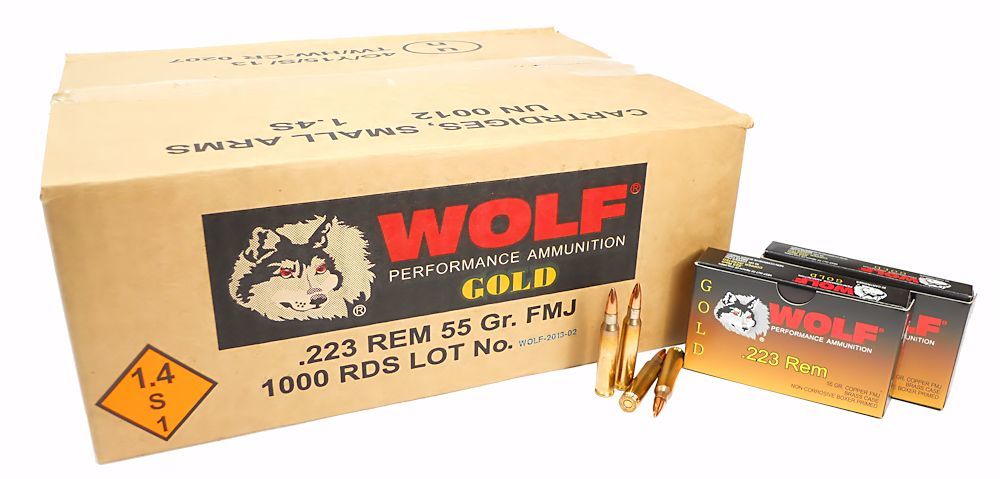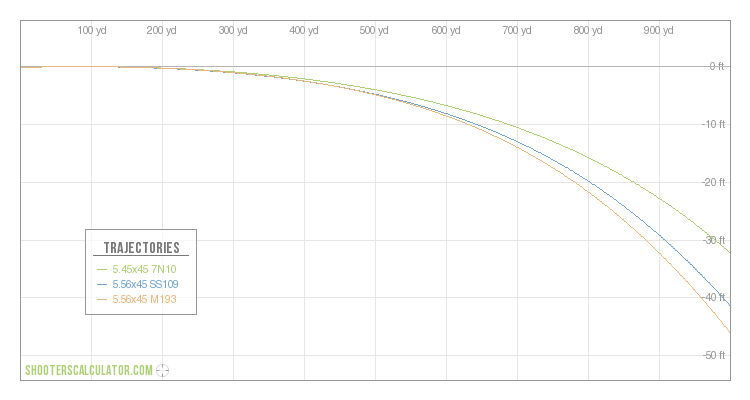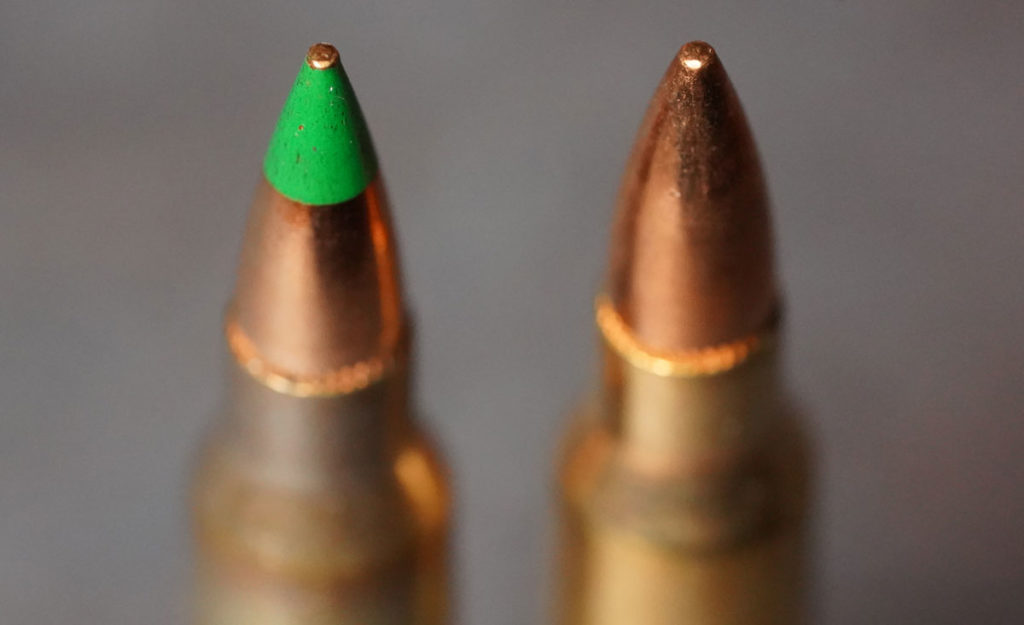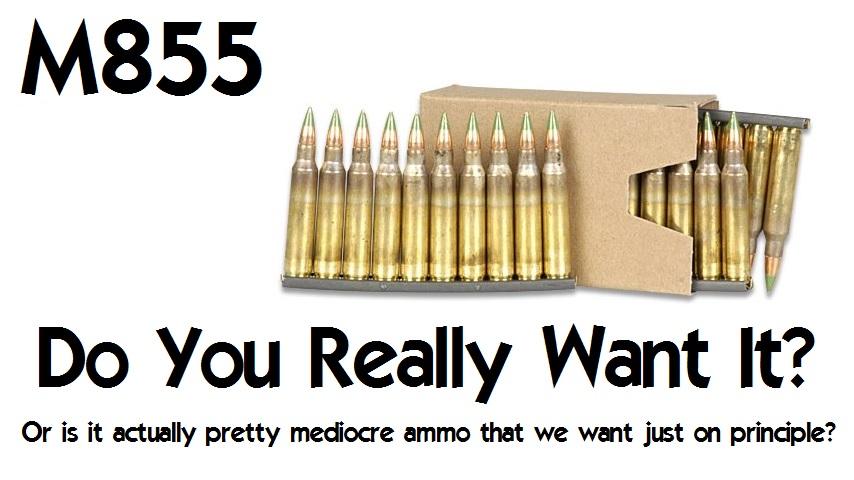Uncategorized
M855 VS. M193 – WHICH ONE IS BEST?
Before we break down the difference between the two rounds, first we need to understand that these configurations are NOT for a .223 chambered rifle. The M855 and M193 are 5.56×45 NATO caliber, which while derived from the .223 Rem.—are not the same. The 5.56 NATO caliber has a much higher power load than the civilian .223, so make sure your rifle can handle the increased 5.56 pressure before sending one of these pills downrange. Keep in mind, the difference between the M193 vs M855 is small, and though the military may have moved on, that doesn’t mean the M855 is necessarily best for you as well.

Wolf Gold, the gold standard in cheap and effective M193 training ammo
WHAT IS THE M193?
The M193 is essentially the standard, average, or ‘run of the mill’ 5.56 rounds. Used in massive quantities by our troops overseas; the M193 is a 55 grain, lead cored, full metal jacket projectile with a muzzle velocity of 3,250 fps. What these characteristics mean for us, is that this light bullet is flying extremely fast, and is generally unstable (a good thing) when it contacts a target. This tumbling effect leads to an increased wound cavity, and ultimately, lethality. Known to be prone to fragmentation upon contact, these rounds are not made to penetrate any sort of barrier, armor, or hardened material.
M193 PROS
- Cheap to purchase and train with
- Good for terminal effects at modest distances
- Can be stabilized in a wide variety of twist rates
- Good range, hunting, or training ammo
M193 CONS
- Effected the most by wind
- Drops more significantly at distance
- Not as barrier blind

M193 vs M855 trajectory. With the Ruskies 5.45x45mm “Poison Bullet” thrown in, just to compare.
WHAT IS THE M855?
Heavier, slower (slightly), and greener, the M855 is a 62 grain 5.56×45 caliber bullet traveling around 3,000fps at the muzzle. Also a full metal jacket, the green tipped M855 comes loaded with a 7 grain steel penetrator-tip which provides the M855 with far superior penetration when compared to the M193. Though it is slower due to the increased weight, the M855 actually sports a higher ballistic coefficient because of its increased length; allowing it to shoot flatter, with les drop and windage shift over long distances.
Don’t get too caught up on the steel tip of the M855, as it is not really an armor penetrating round. Though it does have significant resistance to fragmentation over the M193, the M855 just does not have enough energy behind it to be reliable when called upon for penetrating armor, barriers, or even windshields/glass.
M855 PROS
- More resistant to wind and other environmental factors
- Gives better penetration, and resists fragmentation better than the M193
- Green is my favorite color
M855 CONS
- Slightly more expensive
- Wounds tend to not be as devastating
- Will destroy your steel targets

The iconic “Green Tip” M855 on the left, with the older M193 on the right
MILITARY CHANGE FROM M193 TO M855
As cold war tensions continued after the Vietnam War, a frowing concern was the the M193 round would not be able to penetrate the body armor Russians were beginning to wear (and which wasn’t an issue in Vietnam). FN-Herstal began to develop a new round for NATO forces that was capable of penetrating a Russian Helmet at several hundred yeards, a round called the SS109. After much testing and adoption by various NATO countries, the United States officially adopted the new round and designated it the M855, phasing M193 out. Amost immediately, a concern about lethality arose during engagements in the first Gulf War, and in Somalia. The rounds were reported to punch straight through an enemy combatant, leaving nothing but a clean hole. With these issues continuing well into present-day, the military has now created and adopted the M855A1 to solve most of these issues.

This about sums it up. Most people tend to buy things just because the military uses it, so they assume it’s the best for them too. Do you even operate bro? Because if so… you would be shooting Mk262 Mod1
IS M193 OR M855 “GREEN TIP” BEST FOR ME?
There is no clear ‘winner’ in this comparison. Each round is better at different things, so it is entirely dependent on your needs and application. If penetration or longer distance is at the forefront of your mind, the M855 will likely suit you better. However the M193 is probably a better choice for hunting, as it fragments more easily and causes more terminal effects in the intended target. If I was going out to buy ammo for, well, really for anything; I am going to buy high quality M193 rounds. The fragment better for both hunting and personal defense, and at the distances where the M855 beats it’s trajectory, it’s typically too far to take an ethical shot anyway. Plus, who wants to spend more on ammo, only to destroy a steel target?

